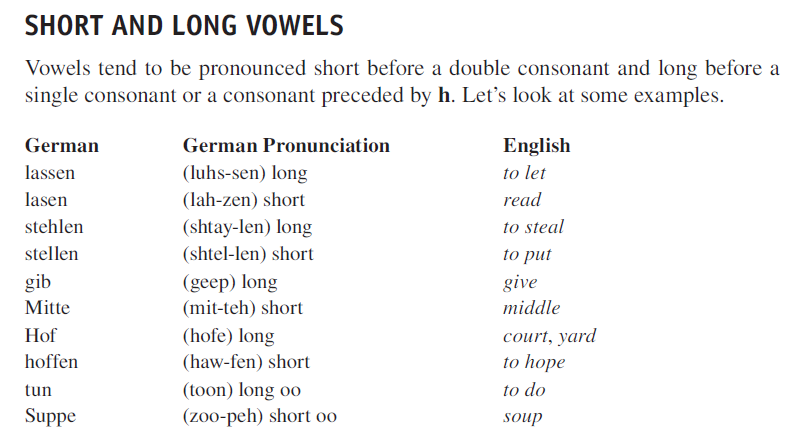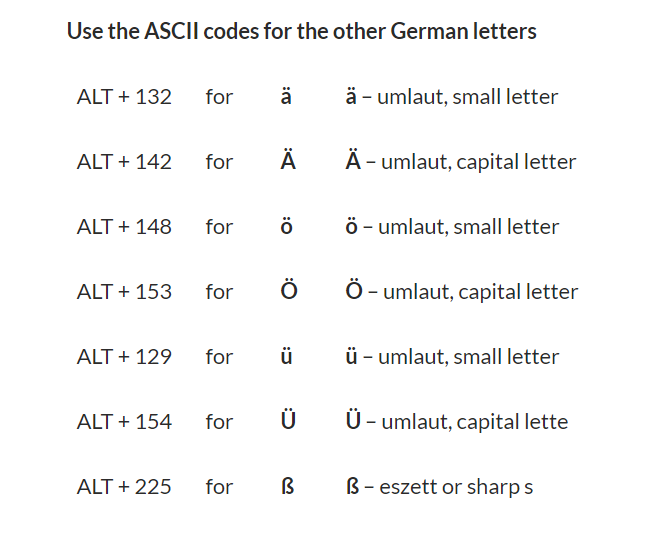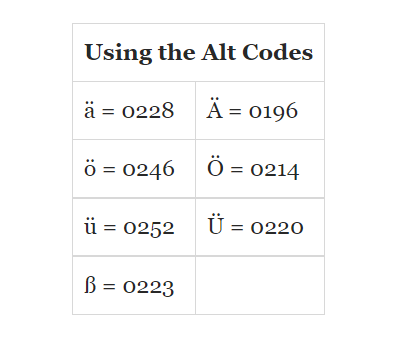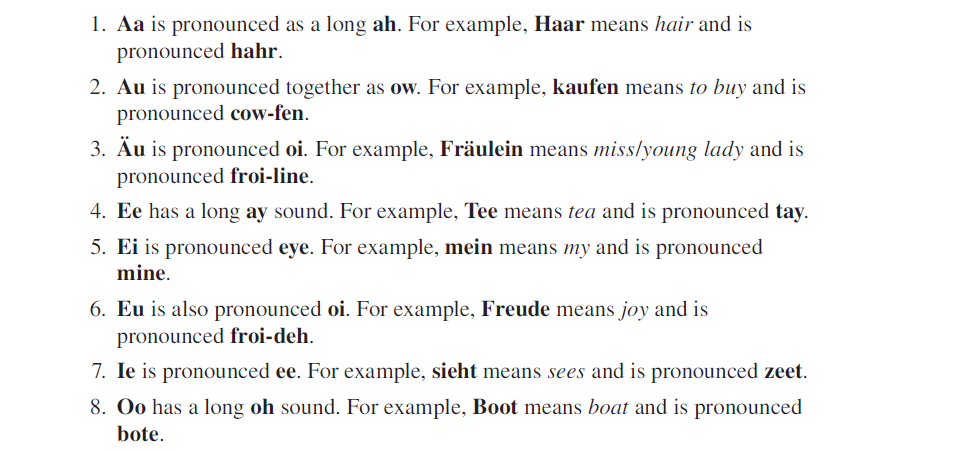German
- tags Language German Vocab German Phrases Germany
- Resources for learning German
- Books
- Teach yourself German
- German Demistified
- Schritte International Series
- Themen Akutell
- Lagune
- Guide
- Watch
- Anime
- Music
- Shows
- Easy German, German from the streets show where interview people on the streets about everyday topics.
- Deutschland von oben Germany from Above.
- Der sendung mit der maus German Show like How its made.
- Extra German Episodes Sitcom with learning aspect.
- NDR documentaries
- A1 Nico Weg DW Great intro videos and natural conversations.
- Harry Trapped in Time Deutsch welle comedy series A1-B1
- Youtv.de
- TVnow.de
- Daserste.de Free with VPN
- Radio D podcast DW.com A1A2 Philip travels to germany
- Anime German Dub youtube
- Anime German Dub II
- AOT German DUB
- Courses
- How to teach yourself German FSI
- Language Transfer Simple intro to german, like Michel Thomas
- Learn German A1 Full A1to B1 course
- Deutsch im Blick Uni texas course on learning german.
- How to read german Smarter German
- MIT German 1 MIT resources for german 1.
- Deutsch mit Marija Best content for taking tests.
- German with Vlog Dave Videos about grammar and common phrases.
- Langfocus Good info on different languages and culture.
- tips for language learning on your own
- German verb conjugations and uses Lots of videos, detailed explanation on all verbs.
- Polyglot pablo Good pronunciation guide
- German professor German grammar, native language coach, detailed material.
- Smarter German breakdown of different language skills like reading, vocab, writing.
- Read
- Children’s books forever German Children’s books in german
- International Children’s Library Children’s books
- Nachrichtenleicht news easy with audio
- Project Gutenberg German Old and classic books in German, advanced
- German Demystified Basic grammar book with smooth progression, best for starting out.
- German in Review Grammar book For indepth grammar review.
- 1001 pitfalls in german intermediate book which is good for reviews.
- DW.comSite to learn about german news and basic courses
- Websites
- German.net Great to start out
- Your Daily German Good site with lots of info
- Germanpod101 FSI language course Basic german Foreign Services institute course
- Loecsen - Basic German phrases for travel with audio and illustrations
- Surface Languages - Basic German phrases with audio
- Learn with Oliver Graded flash cards and word games
- A Guide to German pronunciation joycep detailed pronunciation guide
- Omniglot German Good links and resources for initial research
- FSI language course blog
- ThoughtCo German
- Tower of Babel German learning resources Base vocabulary
- German with Antrim
- Deutsch lernen
- Tools
- Linguee English to German Dictionary
- Reverso Translations
- Word References.com Pickouts words from common usages.
- RhinoSpike recordings in languages by natives.
- Platforms
- Books
- Notes
- Keyboard Shortcut
-
Teach yourself German/ German Demystified
-
Pronunciation
- Consonant combination
- Vowel combination
- The e **at the end of a word is always pronounced **eh **eg- **Tante **- **Tanteh
- Ein Wenig, the ig ending is pronounced as ich
- **‘ie’ is pronounced as ‘e’ **eg- Sie, Dietrich, Wien **‘ei’ is pronounced as ‘i’ **eg- Wein, Einstein Ich trinke Wein in Wien
- There are two ways to pronounce r, if it is in the beginning then use the guttural r **like **rot **-rote and if its in the end like **Zucker **-tsookuh**
- When a b or d **is located at the end of a prefix or word they are pronounced as **p **and **t **eg- **starb - shtahrp, abfahren - ahpfahren **and **Land - lunt, Kind - kint

- Consonant combination

-
Sie (you) sie (she) sie (they)
- Sie (you )is always capitalized, the ending for the verb sie (she) is ‘-t’ as opposed to ‘-en’ for sie (they). The context always makes it clear.
- **Verb conjugations - e, en, st **at the end of the verb depending on first, second, third person.
- Definitive articles - Der, Die , Das (English- the)
-
Indefinite articles - ein, eine (english - a, an)

- Use ein when dealing with masculine and neutral nouns.
- Use eine when dealing with Feminine nouns.
-
Possessive Adjective (mein, Ihr)

- Use Ihr to say your. Ihr is always written in capital. Ihr will have -e ending with feminine nouns.

-
Ihr vs ihr
-
ihr is plural to du and used in informal plural
- Wo seid ihr? (where are you?)
-
Ihr can mean her if used as the dative form of sie (she)
- Ich kaufe ihr das Buch. (I’m buying her the book.)
- Wo ist ihr Auto? (Where is her car?)
-
Ihr = Your (formal Polite)
- Wo is Ihr freund? (where is your friend?)
-
Ihr = their When you want to show third person possession. When you say something is theirs.
- Die Maus hat ihren Käse gegessen.(The mouse has eaten their cheese.)


-
ihr is plural to du and used in informal plural
- The German words for location are hier and da (dort) for here and there.
- Eg- Herr Schneider is in Berlin. Wo ist der Vater? - Der Vater ist hier
- Yes or no (Ja/nein)
- When you negate an answer **you must use the negative **kein (not a, not any, none) which follows the verb ist in the sentence.

- However, if a definitive article (der, die, das) or a possessive pronoun (mein) precedes a noun that is negated then nicht is used in place of kein.

-
Wo ist
- When asked a question with where, you can respond with a city/ country name. you can also use weit von hier (Far form here) or nicht weit von hier
- you can use zu Hause to say that someone is home and** nicht zu Hause** to say that he is not.
- Eg- Wo is Frau Bach? Frau Bach ist zu Hause. Ist Frau Bach zu Hause? Ja, Frau Bach ist zu Hause.
-
Sein(verb)
- An infinitive is the unconjugated form of a verb that expresses action but does not indicate the person (first, second, third) or the numbers (singular plural)
- The English infinitive for sein is to be.

- (formal) __Wie heißen Sie? __(what is your name/ what are your names?) There is no difference between singular and plural for Sie in German.
- (informal) __Wie heißt du? __(what is your name?) du is singular.
- The plural of du is ihr use this to speak to two or more people.
- __Wie heißt ihr? __(What are your names?)

-
Pronunciation
-
Grammar Notes
- Ein is indefinite article for masculine and neutral nouns. Eine is used with feminine.
- Dieser is the demonstrative pronoun of the masculine gender Der Diese is the feminine form, and Dieses is the neutral form **Dieser Platz, Dieses Sonne, Dieses Restaurant **
-
Prepositions
- Preposition explain relations between action and entities in a sentence.
-
Auf
- The core idea of auf is the literal ‘On top of’ but also in more abstract terms of upwards, open, etc.
- Die Tasse ist **auf** dem Tisch. The cup is **on** the table
- __Auf __den Preis kommt noch die Steuer. The tax goes __on top __of the price.
- __Auf __dem Foto ist ein Einhorn. __In __the photo, there’s a unicorn
- Auf as a prefix has two notions, one is based on the on top/ upward idea and the other one is the idea of ‘Open’
- Auf as upward/on top of
- Ich **setze** mir meine Mütze **auf**. I **put** my hat **on**. (“on top of my head”)
- Thomas__ legt bei meiner Party auf.Thomas djs at my party (“puts records on top of the player”)
- Die Sonne__ geht auf. The sun is rising. (“goes upward“)__
- Ich **stehe** um 9 __auf.__ I **get up** at 9.
- Ich **gebe** __nicht auf.__ I won’t **give up. **(think of a knight on his knees yielding their weapon upward)
- Auf as Open
- Hey, dein Hosenstall ist **auf**. Hey, your fly is __open__
- Bis wann__ habt ihr heute auf? Till what time are you open__ today?
- Hast du das Fenster__ aufgemacht? Did you open__ the window?
- Ich habe das Fenster **aufgelassen**. I **left** __the window open__.
- Auf as upward/on top of
- The core idea of auf is the literal ‘On top of’ but also in more abstract terms of upwards, open, etc.
-
Im Am Um as used in prepositions of Time

- “Im” is a merger of “in” + “dem,” Germans use “im” if they would like to express** “inside of.” You use “im” in German to talk about the **year’s seasons **or the **months.
- “am” is a merger of “an” + “dem”. In German, you will always have to use “am” if you refer to a specific day, times of the day, or date.
- You will always have to use “um” if you wish to** talk about times** in German.
-
Verbs
-
Leigen
- The main meaning of leigen is to lie (as in lie next to you) specifically something horizontally.
-
Schein
- The German idea of __scheinen__ is that light is emitted actively by an object. If its reflected light, in German you would use __glänzen__ instead of __scheinen__.
- Die Sonne __scheint__. Mein Auto ist silber und __glänzt__.
-
glänzen is also the word to use if you want to say that someone shines at something in sense of he is really good at it.
- Maria __shines__ at German. Maria **glänzt** in Deutsch.
- Two other meaning of the word shine, one is to polish something and other is to shine your light at something.
- I __shine__ my shoes. Ich __poliere__ meine Schuhe.
- Ich __leuchte__ mit meiner Taschenlampe den Flur __entlang__. I __shine__ my flashlight down the hallway.
- Scheinen has a second meaning or concept because it also means to seem or to appear.
- Mir __scheint__, dass du schlechte Laune hast. It __appears__ to me that you are in a bad mood.
- You seem to be in a bad mood. You shine / emit a vibe or a ‘light’ as if you were in a bad mood. Du **scheinst** schlechte Laune zu haben.
- A __100 €-Schein__ could be literally translated to a 100 €-appearance. The bill emits the vibe of being worth 100 €, it represents 100 € while its actual value based on the mere physical properties the real value is significantly lower… so the 100 €-Schein or more generally the __Geldschein__ still has a connection to the main concept of __scheinen__, which is to actively emit a vibe /light / appearance.
- __Fahrschein__ – ticket for train or bus
- __Gutschein__ – voucher /gift certificate
- __Führerschein__ – drivers license
- __Jagdschein__ – shooting license
- __Wohnberechtigungsschein__ – brought to you by…. bureaucracy: a sort of voucher for people with a low income
- The German idea of __scheinen__ is that light is emitted actively by an object. If its reflected light, in German you would use __glänzen__ instead of __scheinen__.
-
Wenn( If vs When) Vs Wann
- Vid
- Wenn can mean both if and when, depending on how its used. In English “if” is always conditional and “when” is always temporal. In German it is not so.
- Wenn das Licht aus geht, ist die Glühbirne kaputt. (If the light goes out, the light bulb is broken.)
- Wenn sie Zuhause ist, mache ich Abendbrot. (When she’s home, I’ll make evening bread.)
- Lege dich hin, wenn du dich schlecht fühlst. (lie down if/when you don’t feel good.)
- To make the distinction we use the word Falls which is shorthand for für den Fall/im Fall (in case of) to make it very clear that you are using a conditonal.
- Lege dich hin, falls du dich schlecht fühlst. (lie down in case you don’t feel good.)
- **Wann **is the adverb usually used in questions to ask for a **Zeitpunkt **(point in time). Wenn is never used as a question word for a Zeitpunkt.
- Wann kommst du nach Hause? (When are you coming home?)
- Ich frage mich, wann er nach Hause kommt. (I am wondering when he’s coming home.)
- If you would want to make these __wann __conditional, you would NOT use __wenn__, but __ob__:
- Ich frage mich, ob er nach Hause kommt. (I am wondering if he’s coming home.)
-
Leigen
-
Conjugations The change of endings of verbs is called conjugations
- Eg- I speak, you speak, he speaks, they speak.
- Eg -Sie Heißen, Ich Heiße, das Kind heißt
- a word used to connect clauses or sentences or to coordinate words in the same clause (e.g. and, but, if ).
-
Sondern
- One of the three __but-lings__ like __aber__ and __außer __and sondern even though they all translate to but they stand for a different concepts. Ausser is the german word for except, and aber is like the default but.
- Well, **sondern** expresses a specific kind of contrast or__ contradiction – __we could call it exclusive.
- I’m **not** watching the Witcher **but rather** the Mandalorian. Ich gucke nicht The Witcher, **sondern** The Mandalorian.
- The way we phrased it we are excluding one option in favor of the other.
-
**not** __A but (rather) B (instead)
__**nicht **__A sondern__ B - Ich fliege nicht nach London __sondern__ nach Paris. I don’t fly to London __but__ (rather) to Paris.
- **not** A **but rather** B **instead** **not only** A **but also** B
- Mistaking sondern with aber, aber does not provide the contradiction to the phrase like sondern does, it sort of implies both are okay. If we want to emphasis one over the other we use sondern.
-
Sondern
-
Adjectives
-
So source
- So is the answer to the question of How, and answered ‘like that’/’that’
-
How is the question that asks for manner or style and while in English, the generic answer is **that way** or **like that**, in German you just say __so.
- **Wie? So!** **How? That way/like that!**
- **That’s** not how it works. Das läuft/funktioniert **so** nicht.
- Cool, let’s do it **that way**. Cool,** so** machen wir das.
-
So as an intensifier that it is used to kind of quantifying adjectives. Like… **how** __fast, how soon, how much?
English replies by using __that… __that__ fast, **that** soon, **that** __much.
And German does it with so. ALWAYS. And using das__ would be confusing.
- I can’t run **that** fast. Ich kann nicht__ so__ schnell rennen.
- “Wie groß ist Thomas?” “**SO** groß.” “How tall is Thomas?” “**THAT** tall.”(making a hand gesture)
- We can use **so** to intensify adjectives. But you can actually also intensify nouns.
- I’m an idiot. Ich bin__ so__ ein idiot.
- Berlin is **such** a nice city. Berlin ist__ so__ eine schöne Stadt.
-
So source
- Keyboard Shortcut
-
tags German Visa Language German
- German
Notes mentioning this note
Courses
Robotics Applied Robotic Stanford CS235 Fundamentals of Design Languages German Fabrication Making Prototypes Programming/coding AVR C Edx Single variable calculus...
German
tags Language German Vocab German Phrases Germany Resources for learning German Books Teach yourself German German Demistified Schritte International Series...
Language
Resources Learn japanese all the time How to Learn languages Books Stephen Krasen on Language learning How to acquire a...



